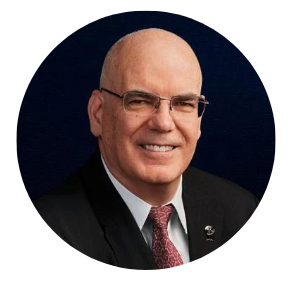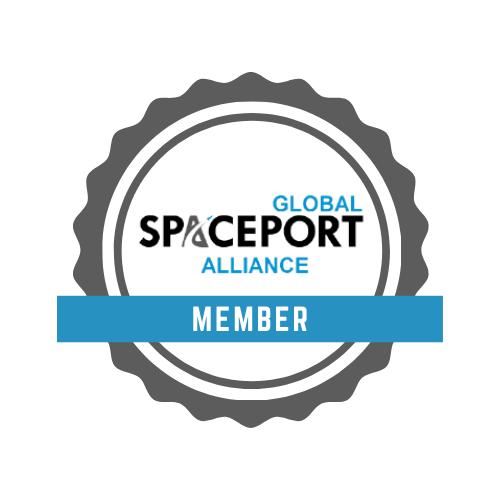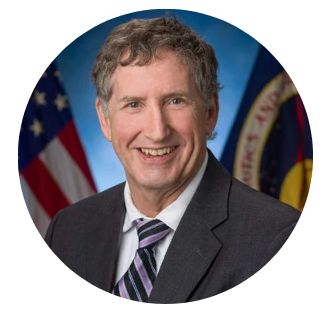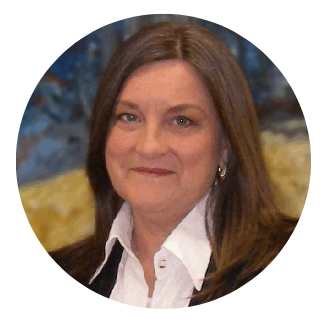
Director – Dr. David Alexander, OBE
Professor, Physics and Astronomy
David Alexander is a professor in the Department of Physics and Astronomy, where his primary areas of research are solar physics, exoplanetary physics and earth remote sensing. Alexander also serves as the Director of the Rice Space Institute where he is responsible for providing vision, direction, and leadership, managing the various institute programs, identifying and fostering research opportunities for our faculty, and interacting with government and the space industry. Professor Alexander was awarded an OBE in June 2018 for services to the space industry at home and abroad and to higher education.

- Dr. Alexander's Bio
-
David received a Presidential Early Career Award for Scientists and Engineers in 2004 and was appointed a Kavli Frontiers Fellow by the National Academy of Sciences in 2006. He is former Chair of the Solar Physics Division of the American Astronomical Society and former Chair of the Solar Heliospheric Interplanetary Environment program. He has served on many professional committees including the NASA Advisory Council’s Heliophysics Subcommittee, and the NASA Solar Heliospheric Management and Operations Working Group. He currently serves on the advisory boards of SpaceCom, the Sasakawa International Center for Space Architecture and on the editorial boards of Space Science Reviews and ROOM: The Space Journal. He has been named a GlobalScot by the Scottish government and was elected to the Board of Directors of the American Astronautical Society in 2018. He served as Chair of the inaugural Aerospace and Aviation Industry Committee of the Greater Houston Partnership until December 2022 and has been on the Board of Directors of the Houston Spaceport Development Corporation in 2021. He was recently appointed to the Texas Aerospace Research and Space Economy Consortium Executive Committee (TARSEC).
Professor Alexander joined the faculty at Rice in 2003. He received his Bachelor of Science in Natural Philosophy and Astronomy, and his doctorate on Relativistic Cosmological Models from the University of Glasgow.
 Director of Research– Dr. Andrea Isella
Director of Research– Dr. Andrea Isella
Associate Professor, Space Physics
Associate Professor, Earth, Environmental and Planetary Sciences
Andrea Isella is the William V. Vietti Associate Professor in the Department of Physics and Astronomy, where his primary area of research are star and planet formation, star-planet interaction, and radio astronomy. As Director of Research, Professor Isella is responsible for expanding the research footprint of the institute both within and outside Rice University, and fostering collaborations with RSI research centers.
- Dr. Andrea Isella's Bio
-
Professor Isella joined the faculty at Rice in 2014, coming from the California Institute of Technology in Pasadena, California, where he was a research faculty working on the study of young planetary systems using radio observations. He received a Laura (BS) in Astronomy from the University of Padova and a Ph.D. in Physics, Astrophysics, and Applied Physics from the University of Milano.
Professor Isella received the "Young Investigator Award in Environmental Sciences, Astrophysics, and Chemistry" by the Italian Scientist and Scholars of North America Foundation in 2016, and he has been a member of the "Next Generation Very Large Array" Science Advisory Council since its inception in 2017. Professor Isella authored more than 130 scientific publications and was the recipient of several research grants from NASA, NSF, and the Welch Foundation.
 Executive Director- Mark Jernigan
Executive Director- Mark Jernigan
Former Associate Director for Space Life Sciences Spacecraft Systems Development Support, NASA Johnson Space Center
Mark Jernigan recently retired after working as an engineer and manager at the NASA Johnson Space Center. He has joined RSI as Associate Director for projects. Mr. Jernigan is responsible for developing ideas for collaborations between Rice and external entities and expanding sponsored research and projects brokered by RSI.
- Mark Jernigan's Bio
-
Mark served at NASA in a number of leadership roles, the most recent of which was his position as Assistant Director for Exploration for the Human Health and Performance Directorate. He was responsible for providing crew health and performance expertise to support design, development, test and evaluation of the next generation human spacecraft and systems needed to accomplish deep space missions. He also led the development of the Directorate’s technology proposal strategy, worked on quantitative methods to characterize human system risks in terms of mission and architecture characteristics, and served as Environmental Control and Life Support manager for the NEXTStep program. Mark received his Bachelor of Science in Aero Engineering from Texas A&M and his Master of Science in Systems Design and Management from MIT.
 Associate Director for Public Outreach – Dr. Patricia Reiff
Associate Director for Public Outreach – Dr. Patricia Reiff
Professor, Physics and Astronomy
Professor Patricia Reiff, the founding director of the Rice Space Institute, has been involved in space plasma physics research for over 40 years, with interests in the aurora and space weather.
- Patricia Reiff's Bio
-
Dr. Patricia Reiff received her Ph.D. analyzing Apollo plasma data, and was a Co-I on the Dynamics Explorer, Polar, IMAGE, and Cluster Missions. She is Education and Public Outreach (EPO) lead for the Magnetospheric Multiscale Mission, to be launched in 2014, which provides free realtime spaceweather alerts to over 850 subscribers.
Dr. Reiff has served as director for public education and teacher enhancement projects for over 20 years. Her “Space Update” software together with “Earth Update” and “Space Weather” have been distributed to over 250,000 educators and learners. Her project “Immersive Earth” created full-dome digital planetarium shows, and has created a portable planetarium system, “Discovery Dome”, which is now in over 160 sites in 29 countries and 29 states. These NASA Cooperative Agreements have spun off two companies, Space Update, Inc. and MTPE which distribute educational materials and portable planetariums.
She has won numerous awards, including Houston’s “Women on the Move” award in 1990. She was elected to the Cosmos Club in 1992, a Fellow of the American Geophysical Union in 1997, and received the AGU “Athelstan Spilhaus Award” for public education in 2009. She also received the “Aerospace Educator Award” from Women in Aerospace in 1999 and NASA “Group Achievement” awards for the IMAGE, GGS and Cluster missions. In addition to training thirteen PhD’s, she created a “Master of Science Teaching” degree, with 23 teacher alumni as of 2011. Most recently, Professor Reiff was named the 2012 “Birkeland Lecturer” at the University of Oslo, Norway.
 Senior International Commercial Space Expert – Hugues Mbezal Bogam
Senior International Commercial Space Expert – Hugues Mbezal Bogam
Hugues Wilfrid MBEZAL BOGAM is a mechanical system engineer by training, graduate from the French Grande Ecole (University of Technology of Troyes). He also holds an Executive MBA in space business management from the International Space University.
Hugues is currently working as Senior International Commercial Space Expert seconded at the Space Institute of Rice University in February 2023 by the French embassy (Washington, DC) and Consulate General of France in Houston, Texas. In this regard Hugues is playing a key role in France’s economic diplomacy in the US and Texas in particular, with objectives to:
- Foster scientific and technological collaborations and partnerships between and among academia, the commercial space industry and government entities in France and the Greater Houston Region;
- Increase visibility of France as a research, innovation and technology power in space;
- Develop bilateral partnerships and projects.
- Hugues Mbezal Bogam's Bio
-
During his early career in 2007, Hugues worked for NASA Ames Research Center in California and was assigned to CheapSat Project: a Low Cost Rapid Respond Systems leveraging commercial components and demonstrates the capability of NASA Ames’ Rapid Prototyping group to design, build, integrate and test a system for under $ 2.5M and within six months.
In addition, from 2008 to 2009, he worked for the European Space Agency in Frascati, Italy with responsibilities to provide support for Interface Specifications Management (Mechanical, Fluidic, Electrical and interfaces with the payload Assembly Composite) for VEGA Launcher.
Hugues has been working for the French Space Agency CNES since 2009. In 2020, he was seconded in Paris, France, at CNES’ Headquarters where he has been appointed as European & International Affairs Advisor responsible for writing proposals, establishing and managing collaborations with a portfolio of Australia, South Korea, Taiwan, Sub-Saharan Africa, Singapore and Southeast Asia.
As a French Delegate, he used to provide technical support to the Ministry of Europe and Foreign Affairs in the multilateral bodies of European Space Agency (International Relations Committee) & the United Nations (COPUOS, Committee for the Peaceful Uses of Outer Space)
From 2014 to 2016, Hugues worked as Business Engineer at the Toulouse Space Center with the goal to Implement and coordinate calls of tenders with French and European companies.
Prior to his appointment in Paris, he worked at the Europe’s Spaceport in French Guiana (South America) where he assumed multiple duties, including Flight Director, responsible for Managing, Planning and Coordinating satellite and Launch Operations on Ariane 5, Soyuz and Vega rockets.
Center Directors
 Center for Planetary Formation, Evolution and Habitability– Dr. Raj Dasgupta
Center for Planetary Formation, Evolution and Habitability– Dr. Raj Dasgupta
Professor, Earth, Environmental and Planetary Sciences
Dr. Raj Dasgupta's Biography
 Center for Human Systems Integration– Dr. Marcia O'Malley
Center for Human Systems Integration– Dr. Marcia O'Malley
Department Chair & Professor in Mechanical Engineering
Professor, Electrical and Computer Engineering
Professor, Computer Science
Professor, Bioengineering
Dr. Marcia O'Malley's Biography
- Former Leadership Personnel
-
Mike Massimino, Inaugural RSI Executive Director, NASA Astronaut
Mike Massimino is a NASA Astronaut and Adjunct Professor in the Department of Mechanical Engineering and Materials Science. As Executive Director, Dr. Massimino is responsible to forge strong and lasting ties between Rice and the NASA Johnson Space Center.
Dr. Massimino is the veteran of two space flights, STS-109 onboard Space Shuttle Columbia in March 2002 and STS-125 onboard Space Shuttle Atlantis in May 2009. STS-109 was the fourth Hubble Space Telescope servicing mission during which Dr. Massimino and his crewmates successfully upgraded the Hubble Space Telescope leaving it with a new power unit, a new camera (the Advanced Camera for Surveys), and new solar arrays. STS-125 was the fifth and final Hubble servicing mission during which Dr. Massimino and his fellow space walkers overcame frozen bolts and stuck handrails to upgrade and service Hubble while setting a crew record for spacewalking with 36 hours and 56 minutes during five spacewalks over the mission. The refurbished Hubble Telescope now has four new or rejuvenated scientific instruments, new batteries, new gyroscopes, and a new computer. Dr. Massimino has logged a total of 571 hours and 47 minutes in space, and a cumulative total of 30 hours and 4 minutes of spacewalking in four spacewalks over his two missions. In between his flight assignments, Dr. Massimino has had technical assignments in the Astronaut Office’s Robotics Branch and EVA (Spacewalking) Branch, as a spacecraft communicator (Capcom) in the Mission Control Center, and most recently as Chief of the Astronaut Appearances Office.
Dr. Massimino was selected as an Astronaut in 1996. Before joining NASA he was a faculty member at the Georgia Institute of Technology where he taught classes and conducted research on human-machine systems. He received his Bachelor of Science in Industrial Engineering from Columbia University, a Master of Science in Technology and Policy from MIT, and a Master of Science and Ph.D. in Mechanical Engineering from MIT.
Mr. Chuck Gibbs, Associate Director for External Programs, Managing Director at Organization+Performance Group, International
Chuck Gibbs has 25 years experience consulting in the energy and healthcare industries domestically and internationally in Executive Coaching, Leadership Coaching and Development, Change Management and Performance Improvement utilizing behavioral and process approaches. He has unique experience internationally and cross-culturally. Chuck has advised business leaders in the a wide range of domains. He is also Director of the Invent Houston Foundation, a not-for profit corporation. Chuck is a Rice graduate from the class of ’84.
Faculty Steering Committee
